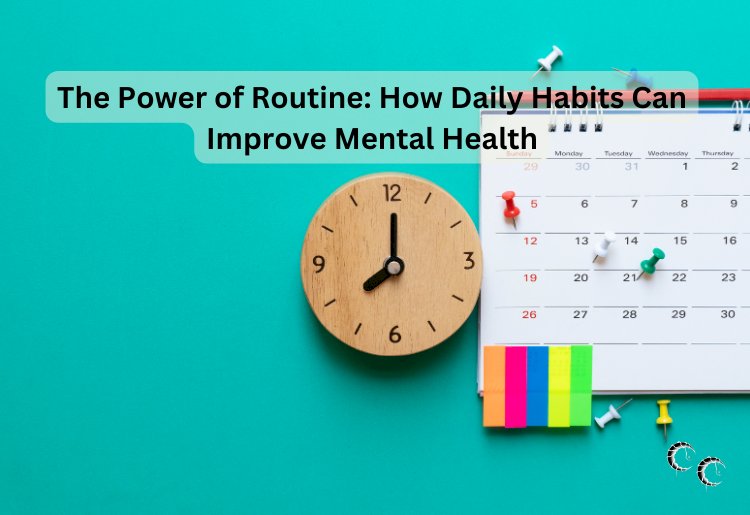The Power of Routine: How Daily Habits Can Improve Mental Health

Routines are often overlooked in their ability to influence mental health positively. However, establishing consistent daily habits can provide structure, reduce stress, and create a foundation for emotional well-being. Whether it’s as simple as setting a morning ritual or practicing mindfulness, routines have the power to bring stability to life, especially during uncertain times.
Why Routines Matter for Mental Health
Mental health thrives on predictability and balance. In an unpredictable world, routines serve as anchors, giving us a sense of control over our day. They:
- Reduce Decision Fatigue: Knowing what to expect helps eliminate the stress of constant decision-making.
- Support Sleep Patterns: Regular sleep schedules improve overall mental clarity and emotional regulation.
- Boost Productivity: Structured routines ensure that important tasks don’t get lost in the chaos of the day.
- Foster Resilience: Having a reliable routine provides comfort and stability during difficult times.
Key Elements of a Mental Health-Boosting Routine
A balanced routine should include activities that nurture the mind and body. Here are a few foundational practices:
Morning Rituals
Starting the day on a positive note can set the tone for the hours ahead. Include habits like:
- Stretching or light exercise to wake up the body.
- Journaling or setting intentions for mental clarity.
- Avoiding screens to create a peaceful start to the day.
Dedicated Work or Study Time
Create a focused schedule for work or learning. Use tools like time-blocking to avoid procrastination and ensure breaks are incorporated to prevent burnout.
Regular Exercise
Physical activity releases endorphins, the body’s natural mood enhancers. Even 20-30 minutes of walking, yoga, or other moderate exercises can improve mental health.
Mindful Practices
Incorporating mindfulness into your routine helps combat stress and anxiety. Options include:
- Daily meditation or deep-breathing exercises.
- Gratitude journaling to focus on the positive aspects of life.
- Spending time in nature to reconnect with the environment.
Healthy Eating
Consistent, nutritious meals fuel the brain and body, improving energy levels and emotional stability. Avoid skipping meals and try to include whole foods like fruits, vegetables, and lean proteins.
Wind-Down Rituals
End the day with calming activities to prepare for restful sleep, such as:
- Reading a book or listening to soft music.
- Practicing relaxation techniques like progressive muscle relaxation.
- Reflecting on the day’s accomplishments or lessons.
How to Build and Maintain a Routine
- Start Small: Focus on one or two habits to establish before adding more.
- Be Consistent: Aim to perform habits at the same time each day for reinforcement.
- Use Tools: Utilize planners, apps, or reminders to stay on track.
- Stay Flexible: Life is unpredictable, so adapt your routine as needed.
- Celebrate Wins: Acknowledge progress, no matter how small.
The Science of Habit Formation
Studies suggest that habits take about 21-66 days to form, depending on the individual and complexity of the habit. Consistent repetition strengthens neural pathways, making the behavior automatic over time. By committing to a routine, you’re creating a sustainable way to support mental health.
When to Seek Professional Guidance
While routines can significantly improve mental health, they are not a replacement for professional support. If you’re experiencing prolonged stress, anxiety, or depression, consider consulting a mental health professional for personalized strategies.
Conclusion
The power of routine lies in its simplicity. By establishing and maintaining daily habits, you create a stable foundation that nurtures mental health and fosters resilience. Start with small changes, and over time, these habits can lead to lasting improvements in well-being.






























